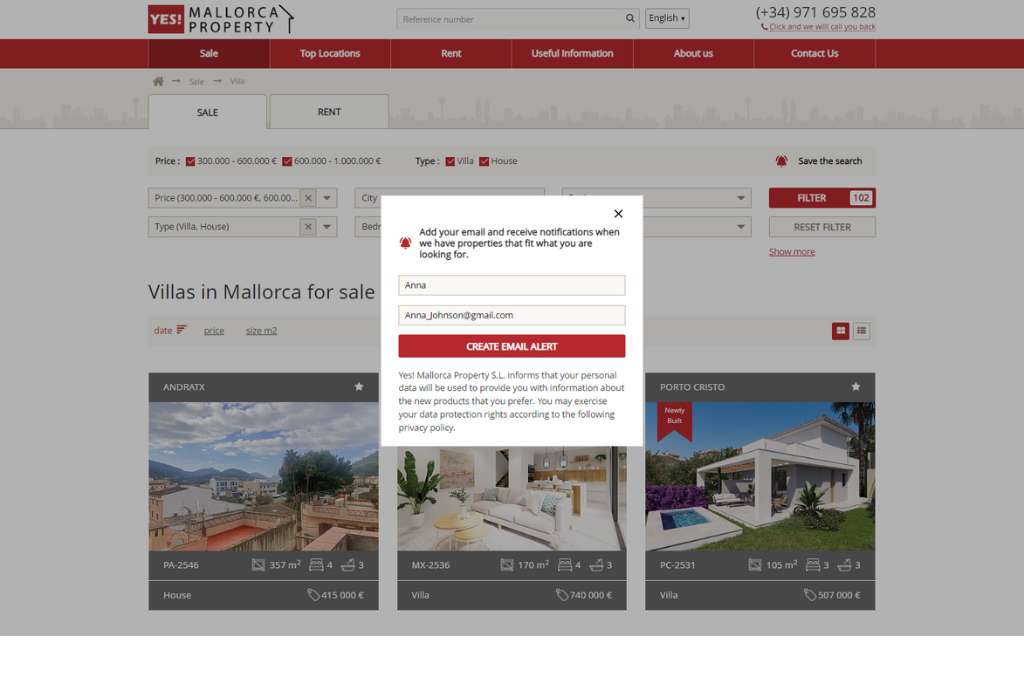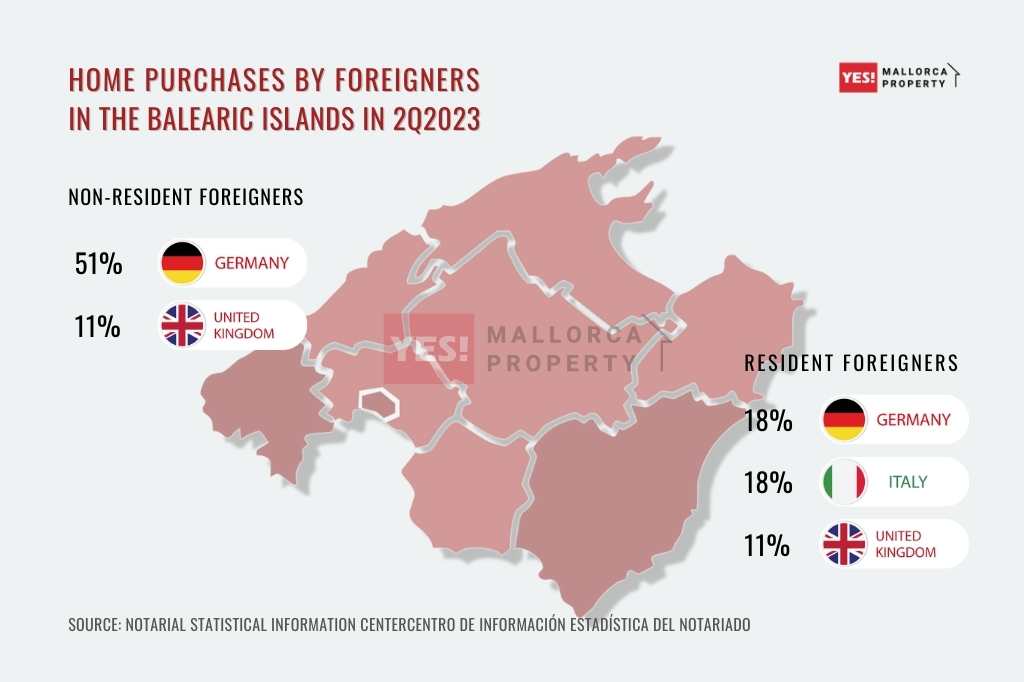New rental laws in Mallorca
After buying property in Spain, many owners are thinking about how to make it as profitable as possible. Most buyers are faced with the fact that property is used by them only for a short period of vacation, and the rest of time it is empty, idle, so they are looking for additional income from the profits of renting property for a short period of time to others in the rest of the year. At the peak of the tourist season, especially in resort coastal areas, this kind of business can bring a lot of revenue.
Before you come to a final decision you have to explore all the legal aspects of this kind of business, to get a complete, step-by-step understanding of your rights and responsibilities, in order to avoid possible problems and complexities associated with the rental, regardless of what role you act as the owner or tenant. Otherwise, you may, for basic ignorance, find yourself in a situation of violation of the law and you will have to pay an administrative fine, the amount of which, for illegal rent in Spain, can range on average from 30.000 € to 90.000 €.
Official legalization of the rental and obtaining a License is not a negative factor for the owner, because, in this case, both parties are protected by the law of the Kingdom of Spain and recommend the owner of the property still refuse the so-called illegal, "black rent", in order to avoid unpleasant consequences. So let’s find out, what are new rental laws in Mallorca.
Rental laws in Spain
Obtaining a Tourist License is only necessary for the owner if he intends to rent accommodation to tourists for a short period of time, in Spain it is called - Tourist or Short-term rent. The official term - "tourist housing for short term rentals" in Spanish legislation is not clear. The Spanish Constitution allows each autonomous region of the country to have its own legislation and its own legal regulation of tourist activities.
The number of Norms and Laws is so diverse that lawyers themselves often have to spend more than one day studying them. For example, the definition of "tourist accommodation" in the province of Catalonia is regulated by Decree 159/2012, dated November 20, according to which: "tourist housing" is an apartment or house whose owner lets it fully to third parties, in exchange for payment, for a period not exceeding 31 days, two or more times a year.
It is important for potential investors in a region of Catalonia like Barcelona to know that the issuance of tourist licences by the local authorities has been suspended indefinitely and that those rare apartments that already have a rental permit are valued quite highly by real estate agencies. The process of renting tourist apartments is under serious control of the city authorities.
Unlike other tourist destinations in Spain, Barcelona has a high tourist attendance in any season, "tourist housing" in this city continues to reach an average employment rate of 90% per year and despite all the restrictions of the legal norms of the region, Barcelona still continues to attract investors, for which it is important to protect their investment and have a sufficiently high rental return.
In the Autonomous Region of Madrid, the situation is different, as Decree 79/2014, of July 10, regulates and defines "tourist housing", according to which: "tourist housing" are furnished and equipped: apartment or house, which are rented fully to third parties in exchange for payment, advertising on the rental of which can be officially placed on web pages and internet portals.
However, the Madrid authorities point to the minimum period of possible rental of tourist accommodation - from five days - and do not clearly define the maximum rental period in their area, as opposed to the legislator of the province of Catalonia.
New rental laws in Mallorca
In the Balearic Islands, Law 8/2012, of July 19 "On Tourism in the Balearic Islands" does not mention or define the concept of "tourist housing", but regulates and establishes such units of living space - such as a tourist complex, hotel, bungalow, residence, etc. The new draft of the Balearic Law provides for a license for the rental of "tourist housing" only after the conclusion of a prior written consent of the neighbors of the housing object, ie, the Act of the parties.
The laws of the Autonomous Communities of Spain, which provide for the licensing of tourist accommodation, establish a clear procedure for obtaining a license and require compliance with certain rules and regulations, which we will consider below.
Licensing process
Registration of "vivienda turística" takes place at the place of registration of housing in the City Hall, in the local or regional administrative office. The landlord is required to justify the suitability of the property for rent and to provide a "Declaration of Responsibility" - a document certifying that the property meets all the necessary requirements. Only after that this procedure is completed, the property is entered in a special Register and the owner receives a Certificate of Registration with the Identification Number. From that moment, he may conduct his business in accordance with the officially established requirements, include VAT in the rental price and conduct income through a bank.
It is important to note that the License is issued for several years and it is issued not for a person, but for real estate, so after selling the house new owner will get it. The price of a Property License for rent differs significantly in different autonomous regions of the country, the price may vary from 170 € to 500 €.
Once the property has gone through the registration process, the owner is obliged to include the issued Registration Number and the category of property in every published rental announcement, regardless of where it is published, whether on web pages or internet portals.



